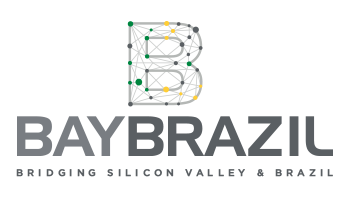Using junk to teach Robotics.
The initiative of Brazilian teacher Debora Garofalo was recognized at the 2019 Global Teacher Prize, presented annually to exceptional teachers who have made an outstanding contribution to their profession.
Debora became the first Brazilian woman in the top 10 finalists selected around the world.
Teaching at a school in the outskirts of São Paulo, she created the “Junk Robotics, Promoting Sustainability” programme.
In our interview, she talks about the demystification in technology teaching and the importance of bringing technology into the classroom
BayBrazil: When did you realize the “Junk Robotics, Promoting Sustainability” teaching project for public school students could reach such a success?
Debora: From the beginning, I realized the potential of robotics to impact learning and involving communities to discuss sustainability.
BayBrazil: How does a robotics class with waste material work?
Debora: It begins in the streets with classes that consists of talking with the residents and collecting electronic waste and scrap. Then, washing, separating and weighing the materials, followed by a conversation and a creative learning process for students in the construction of prototypes. Finally, we organize a technology expo open to the public to bring awareness to the importance of sustainability.
BayBrazil: As technology is usually linked with computers and new materials, did you get any criticism for bringing trash to the tech classes?
Debora: I was severely criticized for my work, some colleagues said that I was teaching craftwork. It was a long process to make people understand that teaching robotics occurs in many ways. One of them is using unstructured materials to teach programming with a programmable board.
BayBrazil: This project is being replicated across the country. Is there a selection or training process for schools and teachers to apply this method?
Debora: I have been teaching since 2016, showing the importance of this work for teachers. In addition, I have participated in national and international debates talking about this project and also worked with the public sector raising awareness on the need to tackle the issue through public policy.
BayBrazil: How do you evaluate the evolution of technology at public schools in Brazil? How to reconcile low resources in a high-cost sector?
Debora: There must be a demystification in the teaching of technology. We are moving forward, but we are not in our ideal. It is necessary to understand that technology is a driving force for learning, capable of leveraging the cognitive process. The school has to deal with the trends linked to education such as maker culture, computational thinking, artificial intelligence, robotics. Our students were born in this area and learn in a different way, where they need to be protagonists.
BayBrazil: Is the technological evolution in the world achieving education in schools?
Debora: Yes, today there is the industry 4.0 and we have already spoken in Brazil of Education 4.0 which addresses these tendencies as essential in the development of work collaboration, empathy, social-emotional relations, and problem-solving skills.
BayBrazil: Could you talk about your career as a teacher and your interest in technology?
Debora: I have always wanted to be a teacher. During my professional career, I had the opportunity to work in other sectors where I realized the importance of bringing technology into the classroom. Our role is instrumental as agents of transformation, and it is fundamental to have this approach to reinvent and keep up with the contemporary world.
BayBrazil: Debora’s program has greatly impacted both students and the local community. It’s now being expanded in a Junk Robotics training for teachers nationwide. It’s also being used as a basis for implementing a new technology curriculum, including the teaching of Programming and Robotics in São Paulo municipal schools.








